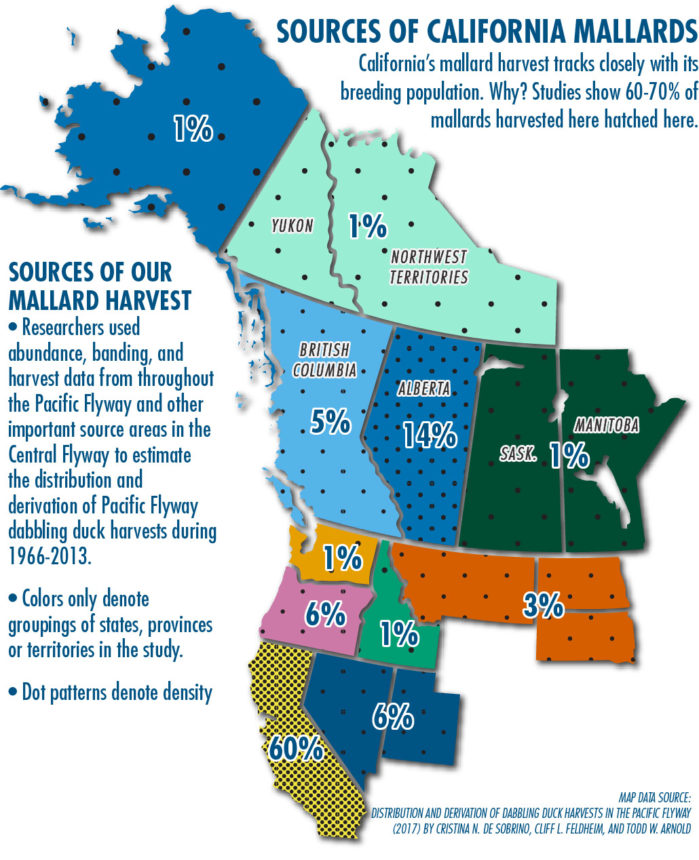BACKGROUND:
Funded by the California Department of Fish and Wildlife 
The Nesting Bird Habitat Incentive Program (NBHIP) was established in 2018 by the passing of Assembly Bill (AB) 2697 and was designed to address declines in local breeding waterfowl and ring-necked pheasant populations. Local breeding populations of these species have been in decline since the 1970’s.
The program was not funded until the passing of AB 614 in October 2021, which created an additional surcharge of $10 for the upland game bird hunting validation and state duck hunting validation. These additional funds provide roughly $2 million annually for the implementation of NBHIP by the California Department of Fish and Wildlife (the Department). California Waterfowl was heavily involved in the development of the program and now helps lead the implementation of the private land incentives on behalf of the Department. The U.S. Geological Survey (USGS) is also a key partner in the program, and leads the biological monitoring with support from CWA.


PROGRAM DETAILS:
The NBHIP is designed to provide economic incentives to encourage landowners to cultivate or retain upland cover such as cover crops, cereal grains, grasses, forbs, and pollinator plants for the benefit of nesting waterfowl, game birds, and pollinators. Habitat projects funded by NBHIP will include both annual and long-term habitat enhancement projects.
Annual enhancements include the following practices: Delayed Cereal Grain Harvest, Fallow Agriculture and Agricultural Corridors (Rice Levees). At minimum, enrolled landowners will be required to leave the upland cover habitat unmanipulated (e.g., no discing, spraying herbicides, mowing, chopping, or rolling of vegetation) from April 1 – July 15. More details on each of these enhancement practices can be found below.
Long-term habitat enhancements projects will focus on the improved management, establishment or restoration of upland habitats on both private and public lands throughout the state. More detailed information about these practices will be coming out in the summer of 2024.
For general questions about the program, contact the program coordinator.
Luke Matthews
Nesting Bird Habitat Incentive Program Coordinator
Luke.Matthews@wildlife.ca.gov or (916) 539-3654
WANT TO PARTICIPATE?
Applications for the Rice Levee Program have closed for this year. Enrollment for Delayed Cereal Grain Harvest and Fallow Agricultural will be open from March 11 – April 10, 2024.


